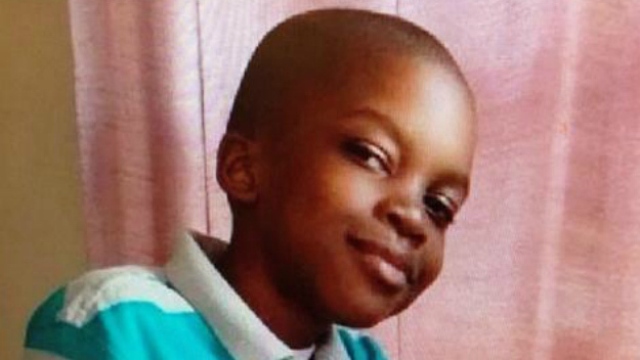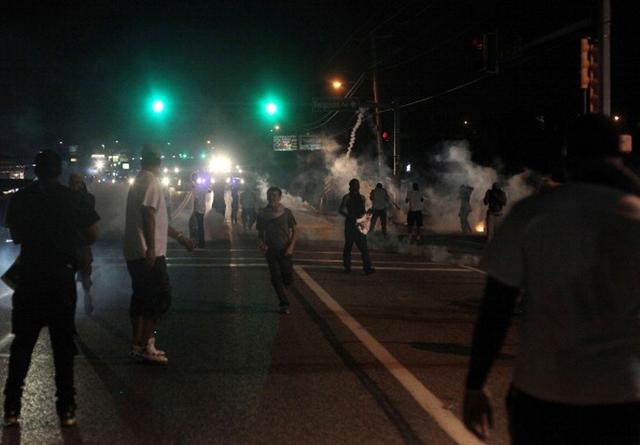Kass Compares Latest Senseless Chicago Shooting To Ferguson
By Chuck Sudo in News on Aug 23, 2014 3:00PM

Antonio Smith, 9, was killed Aug. 20, 2014. He ran from his home after his mother refused to let him have a cupcake. (Family photo)
Resident Chicago Tribune curmudgeon John Kass has been known to go trolling before. His latest example of asshattery in Friday’s paper (which is behind a paywall) makes his “Little Bike People” columns seem like well-reasoned arguments.
Kass visited the Greater Grand Crossing neighborhood where 9-year-old Antonio Smith was shot and killed Wednesday. Smith ran out of his home after his mother refused to let him have a cupcake. Responding to a call of shots fired around 4:05 p.m., police found Antonio in the backyard of an apartment building three blocks away, shot multiple times including twice in the chest. He was pronounced dead at Comer Children’s Hospital 30 minutes later.
Had Kass decided to simply focus on Antonio’s senseless death, he would have had a good story. But this is John Kass we’re talking about and, like Breaking Bad's Walter White, he takes no half-measures with his writing.
”I didn't see protesters waving their hands in the air for network TV cameras. I didn't see the Revs. Al Sharpton and Jesse Jackson playing their usual roles in the political race card game.“I didn't see white college anarchists hiding behind their white plastic Guy Fawkes masks talking about being oppressed by the state. I didn't see politicians equivocating. But the worst thing I didn't see was this:
“I didn't see the theatrical outrage that you see in Ferguson, Mo. A white cop in Ferguson—a place most people never heard of just two weeks ago—shoots a black teenager and the nation knows what to do. The actors scream their roles on cue.
“But in Chicago, a black child is assassinated, and Attorney General Eric Holder isn't on his way here. There are no hashtag campaigns saying #saveourboys. And instead of loud anger, there is numb silence."
That’s right. John Kass decided to compare the lack of protests of a young boy killed only one day earlier to two weeks of protests and riots in a largely black Missouri town, fueled in large part by the excessive response of a police force armed to the teeth with military grade weaponry.
Antonio Smith's death was a senseless act committed by a random criminal. Michael Brown's death was a senseless act committed by an employee of a tax-funded government entity charged with protecting citizens.
There’s more:
Venting outrage at police is easier, and it's politically advantageous. Venting at neighbors is a bit more complicated and dangerous. The neighbors will still be there on the block long after the TV cameras leave. People are afraid. They don't want their children to pay for anything they might say."
Venting outrage at police is easier when they fire tear gas, stun grenades and smoke bombs at largely unarmed crowds.
Venting outrage at police is easier when a cop is caught on camera pointing a rifle at demonstrators, shouting, “I will fucking kill you” and responding to a call for his name and badge number with “go fuck yourself.” Venting outrage at police is easier when one shoots an unarmed black teenager six times in the arm, face and torso, and his fellow officers close ranks around him, and spends the better part of a week refusing to offer details of the shooting.
Venting outrage at police is also warranted when these instances occur.

A scene from Ferguson, Missouri, Aug. 17, 2014. (Joshua Lott/Getty Images)
If Kass is looking for outrage at Antonio Smith’s killing, he needn’t look far. He could (and, to his credit, did) speak with the Rev. Michael Pfleger, who called Antonio’s death an “execution,” helped establish a $13,500 reward—Pfleger called it a "bounty"—for information leading to the arrest of Antonio’s killer, and added, “If you kill a child in our neighborhood, you are a terrorist.”
Mitchell painted a portrait of Antonio Smith’s neighborhood that’s all too familiar: a neighborhood beset by gang violence and residents afraid to let their children on the streets alone. A culture of “no snitching” that enables these gangs to run with impunity on the streets, sometimes even in the presence of police. A neighborhood affected by nearly 50 years of disinvestment and decay.
If Kass was looking for outrage, he could have looked no further than Antonio Smith’s family, who noted he “had his whole life ahead of him” and implored—most likely in vain—his killer to do the right thing and surrender to police.
If Kass is looking for outrage, he could attend any of the scores of small demonstrations, community meetings and CAPS assemblies across the city to find people doing their damnedest to fight against the prevailing culture, people who are making a difference one person at a time. There he can find some of the outrage he feels is missing with Antonio’s death. Contrary to what Kass observed, blacks are not ignoring the violence ravaging their neighborhoods.
Instead, he chose to compare it to the events in Ferguson, where the Justice Department is now conducting a federal civil rights investigation and Amnesty International sent an observation team to an American town for the first time in that group’s history.
I’m outraged at Antonio Smith’s death. It’s also easy to be numbed by it and many who read the headlines have to feel that way at the senseless killings of young children in Chicago. Historian Bill Savage wrote in a Crain’s Chicago Business editorial last month of our ability to look away at shootings because they didn’t happen in our neighborhood, and called for us to do better.
“It makes no difference that a crime has its roots in ‘another neighborhood,’ Savage wrote. “And to suggest otherwise is to embrace an attitude that thwarts progress against violent crime.”
So does comparing a senseless death in Chicago to another elsewhere where the police could eventually be found at fault. A police force that responded in the same over-the-top manner in which Kass did in his column.